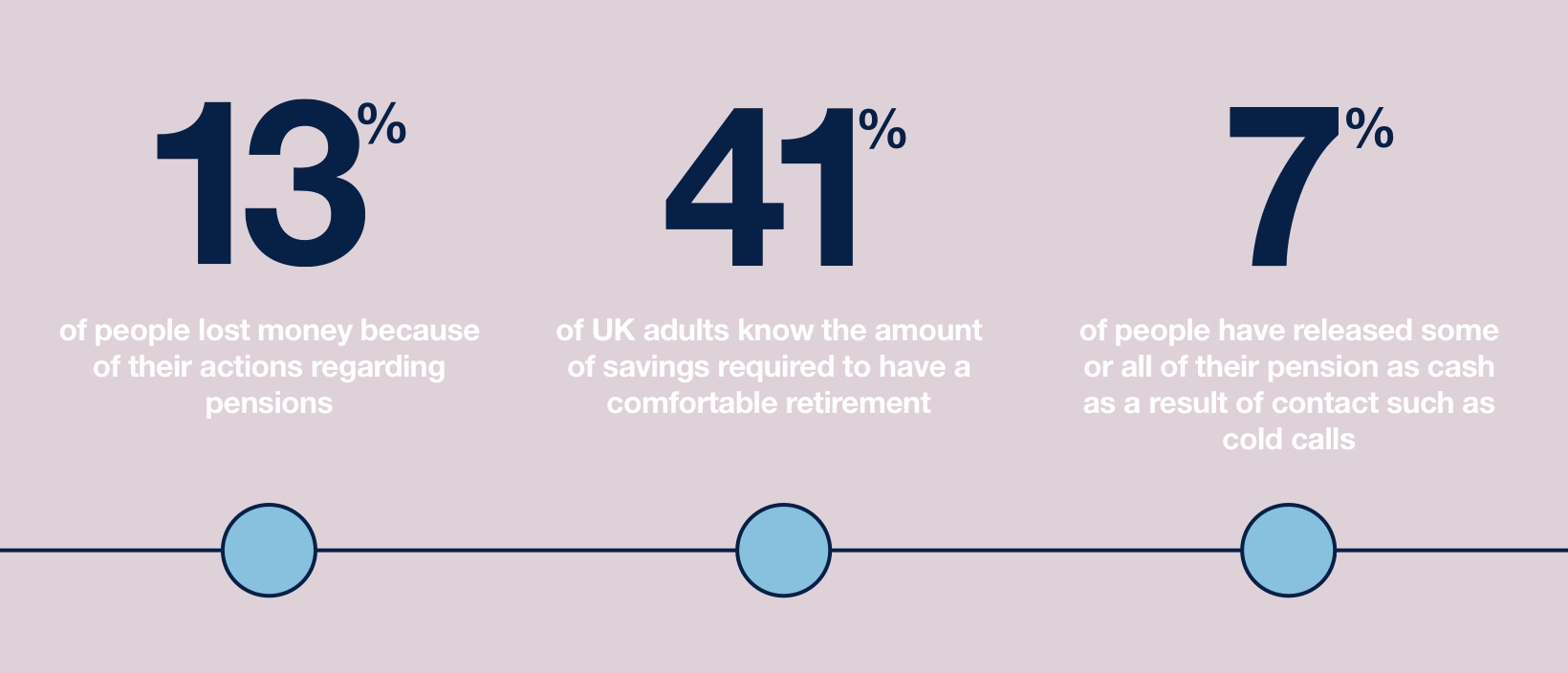Despite this, in my experience few people have fully grasped the enormous benefits that these changes offer, and how they themselves could be affected. This is easy to see, with 2/5th of UK adults admitting they have ignored financial information because they simply do not understand it according to a survey by Aviva in 2016. Of those who ignored financial information, the poll suggested that 13% lost money because of their actions. However, these pension changes could drastically improve how efficient your tax planning is, and enable you greater freedom in regards to retirement.
When it comes to defined contribution pensions, the same poll found that only 22% of UK adults can say that they understand what it is. Not being knowledgeable about personal finances can have serious real implications, such as the age at which one can comfortably afford to retire. Only 41% of UK adults know the amount of savings required to have a comfortable retirement. Understanding one’s own finances is now, more than ever, critical with such drastic changes to UK pensions and increases in UK life expectancies.
The key change was to allow anyone over the age of 55 to spend up to 100% of their own personal pension pot for any purpose they wish, thus removing the requirement to purchase an annuity – an inconceivable freedom only 10 years ago. This was an attempt to combat the measly returns traditional annuities were offering, in a time of low growth and rock bottom interest rates.

There are now three options to take benefits at retirement from a personal pension: flexi-access drawdown, uncrystallised pensions fund lump sum and a traditional pension annuity. These three options enable savers to pick the right form of pension income for their given needs. The changes have been very popular, with 188,000 people accessing the new pension freedoms since the new rules were introduced. Of these, only 13% have opted to purchase an annuity – a significant reduction from previous levels – according to data published by the FCA.
Furthermore, there is now a huge opportunity to distribute your pension fund to your beneficiaries upon death. The fund is able to be passed down giving beneficiaries the choice of taking the pension fund as a lump sum or leaving the fund invested in a pension wrapper and withdrawing an income when required. If death occurs before the age of 75 then it will usually be tax-free, making pension provision a significantly more important tool for consideration when estate planning.
Changes were also made to the caps imposed on pensions, with the life time allowance reduced to £1 million, however, tax relief is still available on contributions at the marginal rate of income tax, subject to various capping. Pensions remain an efficient savings wrapper and, thanks to the increased flexibility of access, pension provision is a core component of any financial plan I might construct for an investor.
Generally, I believe the new flexible pension freedoms are attractive but with the various, often confusing, options available it is essential to make sure the most appropriate route is selected and talking to a professional wealth planner or financial adviser is critical.
Finally, a word of warning: as with many opportunities come the latest wave of scams. According to a survey by Phoenix Group, 25% of UK adults have received a contact such as a cold call about their pension, 59% were approached via a telephone call and 25% via email. 7% have released some or all of their pension as cash as a result of this contact, so please be aware of these financial scams.
Anna Murdock, Head of Wealth Planning
The points made in this article are for illustrative purposes only and if you require any assistance with any of the above opportunities in relation to your personal circumstances, contact your investment manager who can make an introduction to our specialist wealth planning team.
It is important to note that JM Finn & Co is not a tax adviser and where tax advice is required, we would look to work with your existing advisers or refer you to a trusted external tax specialist.



